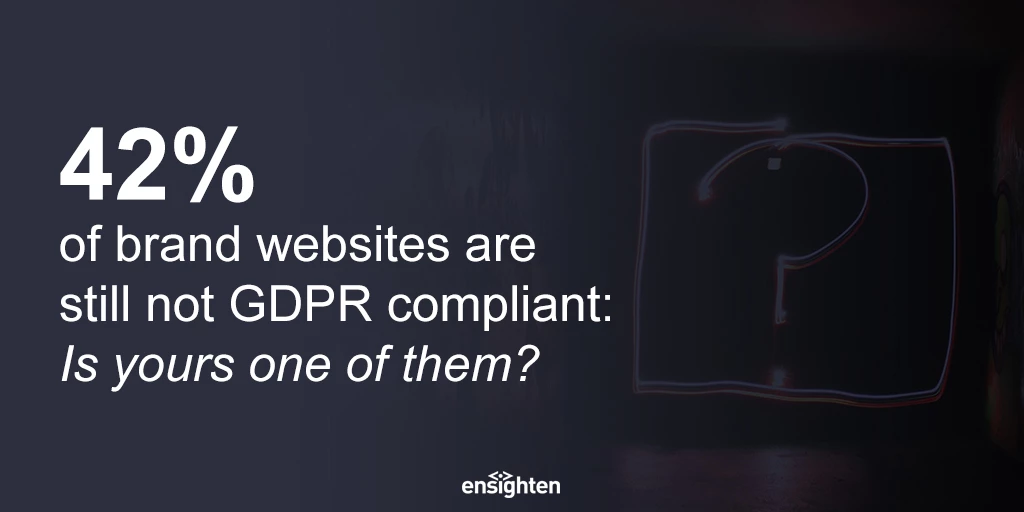
Partner Article
Navigating your data minefield? GDPR can fix that.
For some time now, data has been touted as the black gold of the Internet, yet 56% of marketers at UK small businesses think their current data collection processes are unsophisticated. Unlike large enterprises, many smaller firms haven’t had the scope to cash in on the ‘data economy’ and unlock its full value. However, more data isn’t necessarily better. In fact, having a smaller pool of high-quality customer data is going to pay more dividends for resource-poor SMBs.
The General Data Protection Regulation coming into force in May 2018 calls for a fundamental rethink around how businesses approach data collection. In this article, I’ll outline three ways preparing for the deadline can help small businesses get their data into good shape – in order to unlock long-term business value rather than just ticking a compliance box. Conduct a data flow map exercise It may sound obvious, but understanding the role data plays within an organisation is not only the first step to compliance, but to learning how to use it to make smarter business decisions. With eight months to go until ‘GDPR day’, any business that hasn’t conducted a data flow map exercise needs to start one pronto. This exercise helps to map out all business processes, visualising how data flows through an organisation, what it’s used for and which stakeholder groups are involved. From there, businesses can set out an action plan both for GDPR compliance as well as overall data strategy.
Small business marketers have identified the following opportunities arising from GDPR preparation: Improving the customer experience (70%) Modernising the approach to customer interaction and engagement (66%) Better harnessing big data (58%) Enhancing omni-channel experiences (53%) Strategic data capture (63%) By mapping out the role of data within an organisation, businesses can modernise key processes and future-proof themselves against digital disruption.
Get a handle on suppliers Our research indicates that understanding compliance for suppliers is one of the major GDPR roadblocks for small businesses, with 33 per cent of marketers calling it out as the biggest challenge, alongside managing multiple suppliers.
Confusion still reigns around accountability for GDPR compliance. Businesses have a legal requirement to ensure clear communication of the processes and parameters for data use, across all digital channels regardless of who runs them. Yet despite this, 46 per cent of UK marketers believe their company isn’t responsible for data collection across all digital properties. Small businesses work with an average of four suppliers, yet have had conversations with less than half of them (39%) about GDPR.
One of the biggest challenges in this area is getting visibility of which third parties are tag piggybacking on company websites. What lies beneath a seemingly simple website is often a complex web of piggyback links that can cause compliance nightmares. Sorting this out now will not only get your website for the May deadline, but it will go a long way to improving the overall user experience. Clean up your act Twenty-three per cent of small firms find current data collection processes time consuming. It’s not uncommon to hear database woes about outdated information and lack of precision targeting. The biggest battle for many marketers is getting their hands-on quality data.
GDPR requires businesses to gain explicit consent from consumers before marketing to them. This means communicating in a more open and transparent way with consumers about how they’re using personal information, as well as providing a clear two-step or double opt-in process for marketing.
Cleaning up a database can be a big job, but will help marketers focus their energies on quality leads and personalised customer service in the long run. Some businesses like JD Wetherspoon’s have decided to start from scratch, rebuilding from nothing and focusing less on email marketing and more on social media.
Ultimately, you are only as good as your data. GDPR will force businesses to reassess their relationship with customers and will create a whole new meaning to the ‘Value Exchange’, where consumers receive personalised, meaningful content and services, in return for transparent use of personal data.
This was posted in Bdaily's Members' News section by Ian Woolley .








 When will our regional economy grow?
When will our regional economy grow?
 Creating a thriving North East construction sector
Creating a thriving North East construction sector
 Why investors are still backing the North East
Why investors are still backing the North East
 Time to stop risking Britain’s family businesses
Time to stop risking Britain’s family businesses
 A year of growth, collaboration and impact
A year of growth, collaboration and impact
 2000 reasons for North East business positivity
2000 reasons for North East business positivity
 How to make your growth strategy deliver in 2026
How to make your growth strategy deliver in 2026
 Powering a new wave of regional screen indies
Powering a new wave of regional screen indies
 A new year and a new outlook for property scene
A new year and a new outlook for property scene
 Zero per cent - but maximum brand exposure
Zero per cent - but maximum brand exposure
 We don’t talk about money stress enough
We don’t talk about money stress enough
 A year of resilience, growth and collaboration
A year of resilience, growth and collaboration